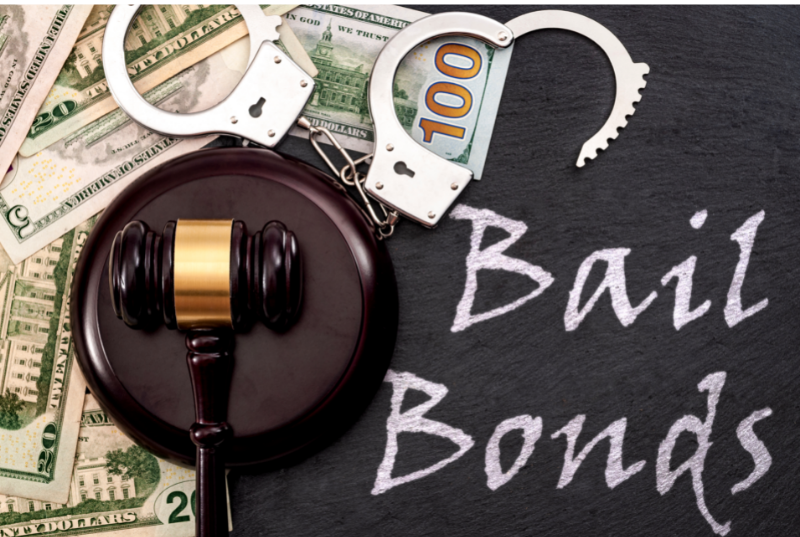Did you know that the police make more than 1.2 million arrests every year in California? Well, this means that you or someone you know might find themselves on the wrong side of the law at some point. If the police arrest you or your loved one, they will search for illegal drugs and weapons before taking you to a jail facility in your county. From there, you will be given a chance to post bail to secure your release as you await the final court verdict.
Here is a summary of California bail bond laws and regulations.
How Do California Bail Bonds Work?
A bail bond, also known as a surety bond, is posted by a licensed bail bond company to the court to promise that the defendant will show up to all the court appearances. The bail bondsman company will act as a representative of licensed surety insurance companies. After bail is posted, the defendant is released from detention, awaiting trial.
Once the court process is complete, the bond will be exonerated and a certificate of a discharged bond will be issued. On the contrary, failure to appear will lead to forfeiture. After the forfeiture, the defendant can request a dismissal or extension. If the court accepts your request the bond will be exonerated and a certificate of discharge bond will be issued.
However, the court can also make a summary judgment and initiate a civil process. After the civil process is complete, the defendant will be awarded a certificate of discharged bond and the bond will be exonerated.
California Bail Laws and Regulations
The California Department of Insurance has been responsible for regulating the bail bond business since the bail bond regulatory act established it in 1937. CDI has come up with several laws and regulations to regulate the bail bond industry. These laws and regulations include:
California Insurance Bond (CIC)
California Code of Regulations (CCR)
Read on to discover a summary of the California bail bond laws and regulations.
California Bail Schedules Laws and Regulations
Bail in California is set according to post bail schedules available in each jail facility. A bail schedule highlights the recommended bail amount for each offense. In California, individual counties are responsible for regulating their bail schedules.
California's bail schedule, encompassing intricate laws and regulations, establishes predetermined bail amounts for diverse charges, permitting defendants to post cash bail and attain pretrial release. Should a judge deny bail, alternatives like property bonds arise. Navigating this process often involves a bail bond agency, facilitating payment and expediting release. Attending the assigned court date is mandatory.
Comprehending these facets of the bail system is pivotal. This multifaceted process, crucial in the California legal landscape, hinges on keywords such as cash bail, bail money, bail amount, posting bail, court date, judge deny bail, property bond, pay bail, pay bail bonds, bail hearing, deny bail, bail bond agency, bail in California, and bail process.
California Bail Forfeitures Laws and Regulations
A bail forfeiture occurs when the defendant fails to show up to court without sufficient excuse. When bail forfeiture occurs, the defendant will not get the bail money back. In California, the County Counsel's office is tasked with recovering bail bond forfeiture debts. Moreover, the court can also issue a bench warrant for your arrest. Here is a breakdown of the bail collection process after forfeiture in California.
The defendant fails to show up to appear in court, and the court declares a forfeiture in an open court
The court clerk will then mail a notice of forfeiture to the bail bond company within 30 days after the declaration
The bail bond company will have 185 days from the mailing date to file a motion seeking relief from forfeiture
The court can accept the motion if the defendant appear in court or is arrested. The motion can also be accepted if the defendant is in custody outside jurisdiction or proof of permanent disability is submitted
The reinstatement of bond is also a ground for relief from forfeiture
If any of the above happens, the forfeiture will be vacated, and the bail will be exonerated. However, the defendant has to show up to court within 180 days if they have a temporary disability.
The court clerk will then send a note of the $130 assessment to the surety company. If the company fails to pay the assessment within 30 days, the Court Counsel will send a ten-day last chance notice.
If the bail bond company fails to pay the bail amount after the ten-day notice, the County Counsel can send a shutdown notice or another warning letter.
If the court fails to declare a forfeiture of the bail, the hearing will continue. However, the court will lose jurisdiction over the bond if the court hearing does not continue. Likewise, the court will lose jurisdiction over the bond if the court clerk fails to send a notice of the forfeiture to the bail bond company within 30 days.
California Bail Agents Regulations
CDI licenses bail agents in California. To become a licensed bail agent, you have to meet various requirements.
Before working with any bail bond agent, make sure to find out if they are licensed to provide bail bonds in your county here.
Bail Premium Rates in California
CDI makes sure that each bail bond company in California charges fair bail premium rates. Each bail bond company must file rates with CDI. The court is responsible for determining the bond amount in California. Usually, defendants pay 10% of the total bond amount plus additional reasonable expenses.
Looking for Reliable and Cheap Bail Bonds in California? We can help
Golden Boy Bail Bonds is ready to help you secure your release or get a loved one out of jail as soon as possible. Our California bail bond agents are available 24/7 and will post bail for you and your loved one in a couple of minutes. Contact us to learn more.

